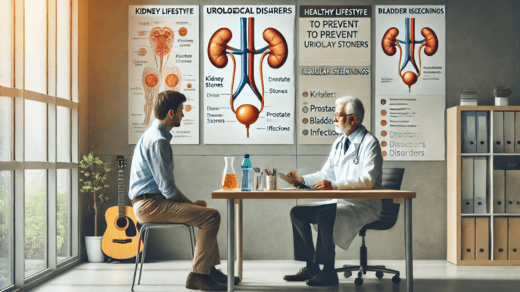Staying Ahead Of Urological Disorders With Preventive Health
Staying ahead of urological disorders is crucial for lasting health. By focusing on prevention, we can tackle issues before they escalate. For example, Murray Hill hormone replacement therapy has shown promising results in this area. Early action makes a significant difference. Embrace regular check-ups, adopt a balanced diet, and maintain an active lifestyle. These steps keep us on the path to wellness.
The Importance of Regular Check-ups
Regular medical check-ups provide a foundation for detecting urological disorders early. They allow healthcare providers to identify changes that could indicate a problem. Routine care is more effective after treatment. Consistent screenings, like prostate exams and urinalysis, are vital. These tests help in spotting issues before they become serious. According to the Centers for Disease Control and Prevention (CDC), regular check-ups contribute to better outcomes.
Diet and Its Impact
The food we eat has a profound effect on urological health. A balanced diet supports the urinary system in various ways. Include:
- Fruits and vegetables for essential vitamins
- Whole grains for fiber
- Lean proteins for muscle maintenance
Research shows that reducing red meat and processed foods can lower the risk of urological issues. The National Institute of Diabetes and Digestive and Kidney Diseases (NIDDK) offers helpful resources on this topic.
The Role of Physical Activity
Staying active is beneficial for the body, including the urinary system. Exercise helps maintain a healthy weight, reducing pressure on the bladder. It also boosts circulation, which aids in toxin removal. Incorporate activities like walking, swimming, or yoga. These exercises support overall health, keeping urological disorders at bay.
Understanding Risk Factors
Knowing risk factors can help in taking preventive steps against urological disorders. Common factors include:
- Aging, which increases the likelihood of conditions
- Family history, as genetics play a role
- Lifestyle choices, such as smoking and alcohol use
By understanding these risks, you can tailor preventive measures to suit your needs. This approach empowers you to make informed decisions about your health.
Comparison Table: Prevention vs. Treatment
| Aspect | Prevention | Treatment |
| Cost | Lower | Higher |
| Time | Less | More |
| Effectiveness | High | Varies |
Conclusion
Preventive health is key to staying ahead of urological disorders. With regular check-ups, a balanced diet, and an active lifestyle, we can minimize risks. Understanding personal risk factors helps in making informed choices. Prevention is not just about avoiding problems—it’s about enhancing quality of life. By taking these steps, we can ensure healthier futures.

